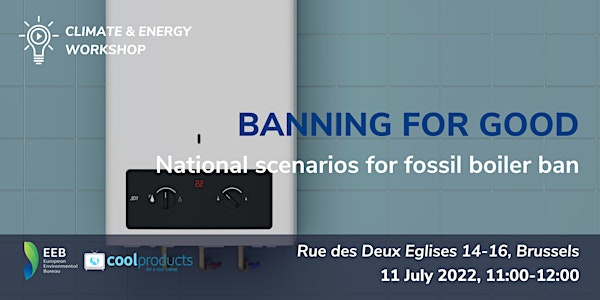The fossil boiler ban talk is rumbling across Europe.
Faced with social, security, and climate challenges, more member states are announcing their ban of fossil boilers, further supported by the REPowerEU proposal to expand the ban EU-wide by 2029.
The rolling ban will likely have great consequences on the (Russian) fossil imports, for the achievement of the GHG emissions and the renewables targets for buildings that member states have enshrined in their National Energy and Climate Plans. The standing questions for countries are then:
- How much of their gas imports would be saved if the ban was adopted?
- How much of their targets would be achieved with this simple measure?
- Could this measure be the game changer for national climate policies and for achieving REPowerEU goals?
These questions will be answered at our workshop, “Banning for good”, where Öko-Institut will presents the results of a research carried out on behalf of the Coolproducts campaign.
The event will take place in-person at the EEB office, Rue des Deux Eglises 14-16, 1000 Brussels and as well as online via Zoom.
Agenda
11:00 Welcome
11:10 Intro and context - Davide Sabbadin (Senior Policy Officer for Climate & Circular Economy, EEB)
11:20 Main results and highlights of the report - Sibylle Braungardt (Senior Researcher, Öko-Institut)
11:30 Q&A
12:00 Closing remarks
This event is part of the Coolproducts campaign. Co-led by European Environmental Bureau (EEB) and Environmental Coalition on Standards (ECOS), Coolproducts is a coalition of NGOs working to ensure better products for consumers and the planet. www.coolproducts.eu
